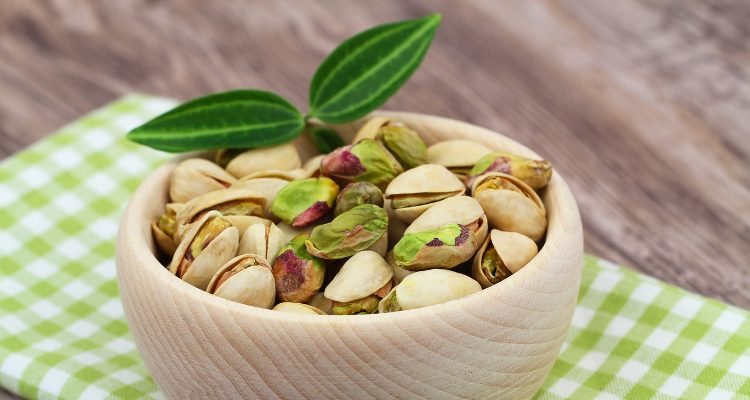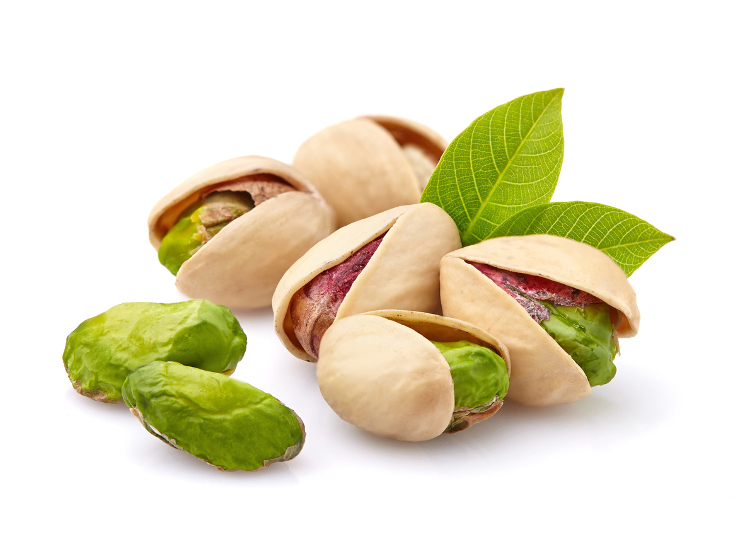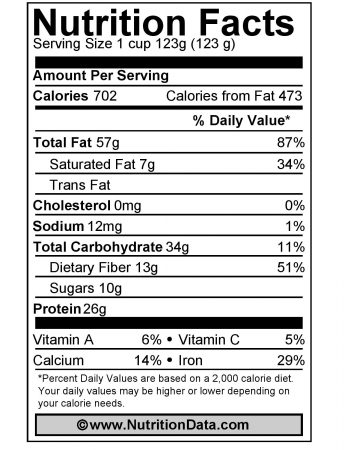
A member of the cashew family, pistachios are delicious nuts and rich in nutrients. They are mostly grown in the Middle Eastern regions where the climatic conditions are hot and dry. Pistachios have always been popular for their rich taste, but lately, they have received serious attention from nutritionists. Yes, pistachios are deemed to have wonderful health benefits because of their nutritional value.
Gone are the days when nuts were regarded as fatty food. Nutritionists and dietitians now consider nuts like Brazilian nuts, almonds, walnuts, and macadamia nuts as a healthy snack food. They are highly nutritious and an excellent food to eat for a low-carb diet.
Let’s take a further look at the health benefits and nutrient content of pistachio nuts.
Are Pistachios Really Healthy?
Pistachios are healthy enough to eat on a regular basis. They contribute to overall cardiovascular health by curbing the bad cholesterol level, or low-density lipoprotein (LDL). They can be eaten as a good-fats snack as they rich in omega-3 and omega-6 fatty acids, as well as poly and monounsaturated fatty acids. They do have saturated fats, but are low in cholesterol.
Pistachios are rich in dietary fiber. Eating pistachios will leave you feeling full and energetic for a long time, thereby limiting your calorie intake. They are rich in proteins and minerals as well. They are a good source of potassium and phosphorus, and contain small amounts of vitamins A, C, B6, E and K, and folate.
They also contain antioxidant compounds, which help in destroying toxic free radicals in the body. The pistachio oil extracted from the nut has a wide number of applications. It can be used for cooking as well as for massage therapy, aromatherapy, and in pharmaceutical and cosmetics industries.
Pistachios Nutrition Content
Pistachios are loaded with nutrients. They are low in cholesterol and sodium, and high in protein and minerals. They are a good source of protein, healthy fats, and minerals—especially for the those living in dry and arid regions.
They are an excellent source of energy and consist of important vitamins like :
- Vitamin A
- Vitamin C
- Riboflavin
- Nacin
- Thiamin
- Pantothenic acid
- Vitamin B6
- Folate
Pistachios have a good number of minerals present in varied quantities—copper, manganese, phosphorus, potassium, calcium, iron, magnesium, zinc, and selenium. These nuts have antioxidant properties, and the vitamin E in them is known to slow down the aging process by improving skin texture.
credit:nutritiondata/Pistachios-Nutrition
According to the SELF Nutrition Data web site, a 123-gram serving of pistachios has 23.6 grams of protein, 56.5 grams of total fat, and a variety of minerals including 1,282 milligrams potassium and 597 milligrams phosphorus. Out the total fat content mentioned, pistachios have 16,722 milligrams of omega-6 fatty acids, 322 milligrams of omega-3 fatty acids, 29.8 grams of monounsaturated fats, and 17.1 grams of polyunsaturated fats. The dietary fiber in pistachios is 12.7 grams.
Why Are Pistachios Good for You?
Pistachio health benefits are numerous if consumed in the right quantity. We have listed seven such benefits.
1. Improves Cardiovascular Health
Studies have shown that pistachios contribute to heart health by reducing the bad cholesterol level and increasing the good cholesterol level. Pistachios contain plant sterols that inhibit the absorption of cholesterol in the stomach. This is how they balance the cholesterol level in the blood. It has been found that pistachios can reduce the threat of heart attacks too.
2. Acts as an Anti-Inflammatory
Pistachio nuts have phenolic compounds and vitamins A and E, which contain anti-inflammatory substances.
3. Enhances the Immune System
Pistachios contain small amounts of vitamins E and B6, phytochemicals like carotenes, and polyphenolic antioxidant compounds, which help in releasing toxic free radicals from the body. Thus, they protect the body from oxidative damage and help prevent diseases like cancer.
4. Boosts Hemoglobin Count
Pistachios contain iron and vitamin B6. These two components increase hemoglobin in the blood. A higher level of hemoglobin increases oxygen in the blood, resulting in increased energy levels.
5. Helps Manage Weight
Pistachios help keep weight in check as they have a good amount of dietary fiber. Therefore, consuming them in the morning discourages the intake of unwanted foods, since they promote that ‘full feeling’ for a long time. They also provide the body with protein, which is useful in burning fat.
6. Good for Skin and Hair
Rich in vitamin E and fatty acids, pistachios offer good skin health and hair benefits. They act as natural moisturizers that keep the skin smooth and provide it with a healthy glow. On the other hand, they are rich in biotin as well, which curbs hair loss and improves hair quality.
7. Anti-Aging Properties
Pistachios have antioxidant properties and vitamin E, which aid in maintaining the skin’s suppleness. The antioxidants present destroy free radicals in the body, thus preventing oxidative damages. Also, due to its oily nature, pistachios act as a natural moisturizer.
Side Effects of Pistachios
Although, pistachios are a wonderful storehouse of nutrients, consuming them in excess may lead to these ill effects.
1. High Blood Pressure
Pistachios naturally do not contain much sodium. However, be mindful of consuming roasted pistachios as they have a high quantity of sodium. Too much sodium intake is bad for the heart, as it increases blood pressure or hypertension.
2. Gastrointestinal Problems
Pistachios also contain some traces of fructan. This compound is harmless; however, those who are allergic to fructan should avoid pistachios, as it might interfere with the digestion process.
3. Bad for Those with Kidney Problems
Those with kidney problems should avoid overeating pistachios, as theses nuts are rich in potassium. These people find it difficult to process potassium due to the kidney’s unhealthy condition. An unnecessary amount of potassium in the body will lead to various health problems like nausea, weakness, slowed pulse and heartbeat, internal bleeding, dehydration, type-1 diabetes, and Addison’s disease.
In a nutshell, pistachios are a superfood when consumed in moderate quantities, and studies reveal that eating pistachios daily is good for overall health benefits. So, be sure to include them your daily diet—preferably as a morning snack.
Related:
- How Many Eggs Per Day? Eggs Nutrition Facts and Health Benefits Explained
- Coconut Meat: Nutrition Facts and Health Benefits
- Drumstick Leaves: Nutrition Facts, Health Benefits and Recipes
Sources:
“Nuts, pistachio nut, dry roasted, without salt added Nutrition facts & Calories,” SELF Nutrition Data web site; http://nutritiondata.self.com/facts/nut-and-seed-products/3136/2, last accessed January 31, 2017

















